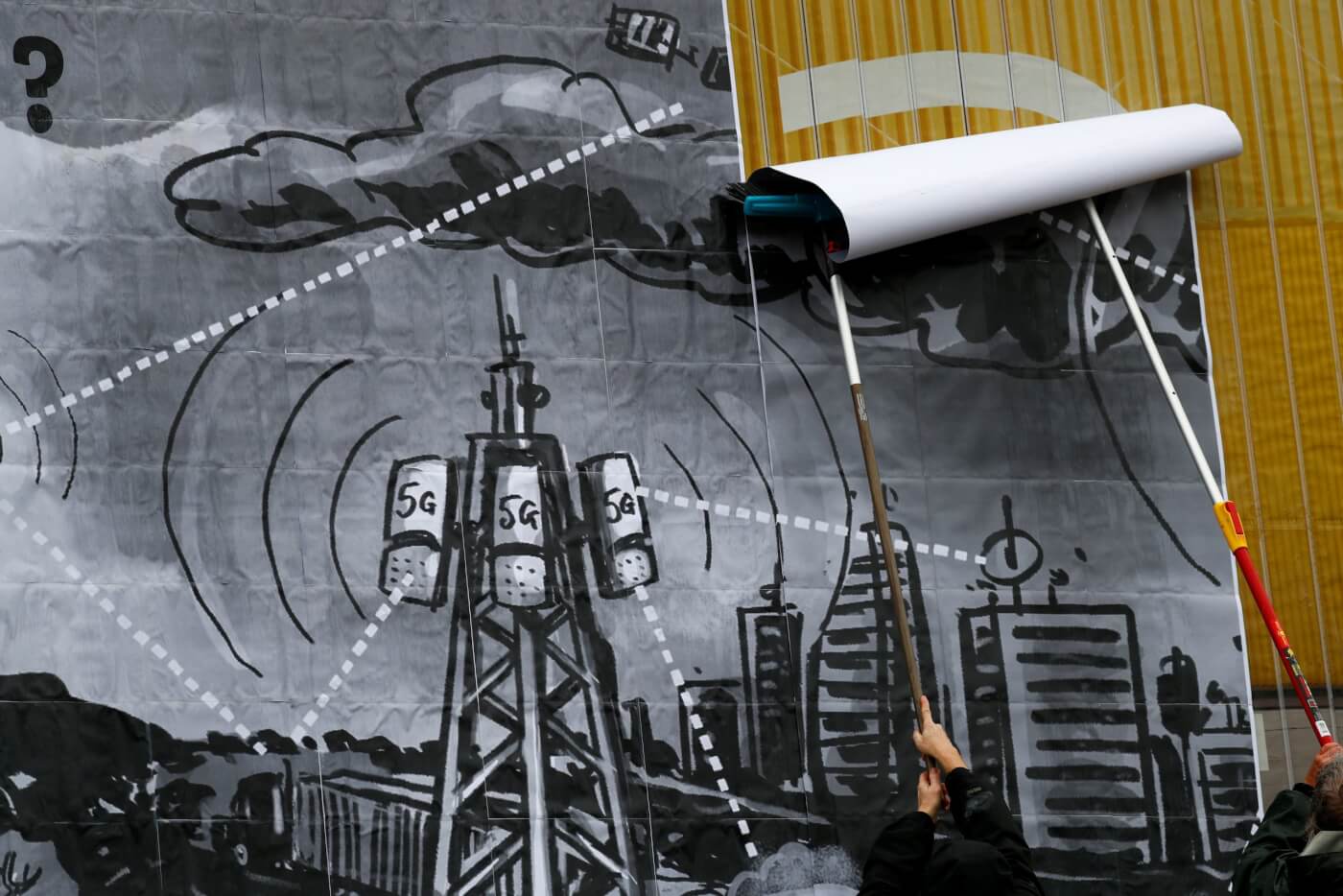In a joint letter to EU digital chief Margrethe Vestager, internal market commissioner Thierry Breton and values and transparency commissioner Věra Jourova listed their concerns and proposals regarding 5G in Europe and urged the EU to launch a strategy to address the disinformation and conspiracy theories surrounding it.
“It is clear … that we are witnessing increasing activity of the anti-5G movement across the European Union,”
they said, calling for the EU to “take an active, long-term and systemic approach” to tackling concerns about 5G and electromagnetic fields (EMF).
“We, as Member States are willing to contribute to this EU-wide initiative with our national expertise and best practice to tackle the issue of 5G and EMF disinformation,”
the letter said.
Conspiracy theories that the novel coronavirus may be linked to the wireless technology have led to the torching of mobile phone masts in ten European countries and assaults on maintenance workers in recent months. Telecoms groups have reported 140 attacks across Europe between January and June, with a majority of criminal acts occurring in the UK and the Netherlands.
“We would like to stress that acts of vandalism against telecommunication infrastructure and escalating disinformation on electromagnetic fields and 5G are not only a threat to the economy of the affected member states but hinder also the ability for the European Union to meet its ambitious 5G goals,”
the letter states.
Signatories to the letter include Poland, Sweden, Austria, Bulgaria, Croatia, the Czech Republic, Cyprus, Estonia, Finland, Greece, Latvia, Lithuania, Luxembourg, Portugal and Slovakia.
What is 5G and why is there a movement against it?
5G will provide virtually ubiquitous, ultra-high bandwidth, and low latency “connectivity” to, not only individual users, but also to connected objects. The 5G rollout will have a significant impact on artificial Intelligence systems as it will enable the provision of real-time data collection and analysis. It will also bring the “cloud” to a new dimension by enabling the distribution of computing and storage throughout the infrastructure.
Speaking on the topic of 5G security at a press release in July, Margrethe Vestager, Executive Vice-President for a Europe Fit for the Digital Age, said:
“The timely rollout of 5G networks is strategically important for all Member States as it can open new opportunities for businesses, transform our critical sectors and benefit European citizens.”
As part of the EU’s 2016 5G action plan, nations committed to developing their next-generation telecommunications infrastructures. These targets included the launch of 5G services in all member states in at least one major city by the end of 2020.
The opposition against the next-generation telecom technology claims radiation from 5G has a negative health impact and, through ‘Stop 5G’ groups on social media, they have successfully pushed some authorities to start investigating the health effects. Groups have also spread wild, and wildly untrue, theories linking 5G to the spread of coronavirus in recent months.
Little evidence exists however linking cell phone radiation to health problems, the World Health Organization underlined in its evaluation of 5G.
“To date, and after much research performed, no adverse health effect has been causally linked with exposure to wireless technologies,” it said.
In April, Facebook blocked two major anti-5G groups, with a collective membership of more than 60,000 people, for promoting violence and the destruction of 5G network infrastructure.
5G and human rights
The radical transformation that the 5G rollout will bring is the reason why it matters from a human rights perspective. It can help improve the efficiency, transparency and openness of governance and can increase accountability and civil participation. 5G’s transmission speed and lower latency also means more people across the world will be able to access the internet, which is increasingly important for digital equality.
At the same time, the digital technologies enabled by 5G can pose risks to democracy and governance, in particular with regards to privacy, data protection and undue surveillance to name a few.
The Internet of Things, a term increasingly being used to define objects that ‘talk’ to each other, is likely to become much more common after the 5G rollout. By combining connected devices with automated systems, it is possible to “gather information, analyse it and create an action” to help someone with a particular task, or learn from a process.
But if every product becomes connected then there is the potential for unbridled observation of users. As pointed out by Matt Burgess in an article for Wired,
“if a connected fridge tracks food usage and consumption, takeaways could be targeted at hungry people who have no food. If a smartwatch can detect when you are having sex, what is to stop people with that data using it against the watches’ wearer.”
The 5G rollout will significantly change almost every single aspect of life which is why, now more than ever, it is important to stand up for our digital rights and online freedom.

